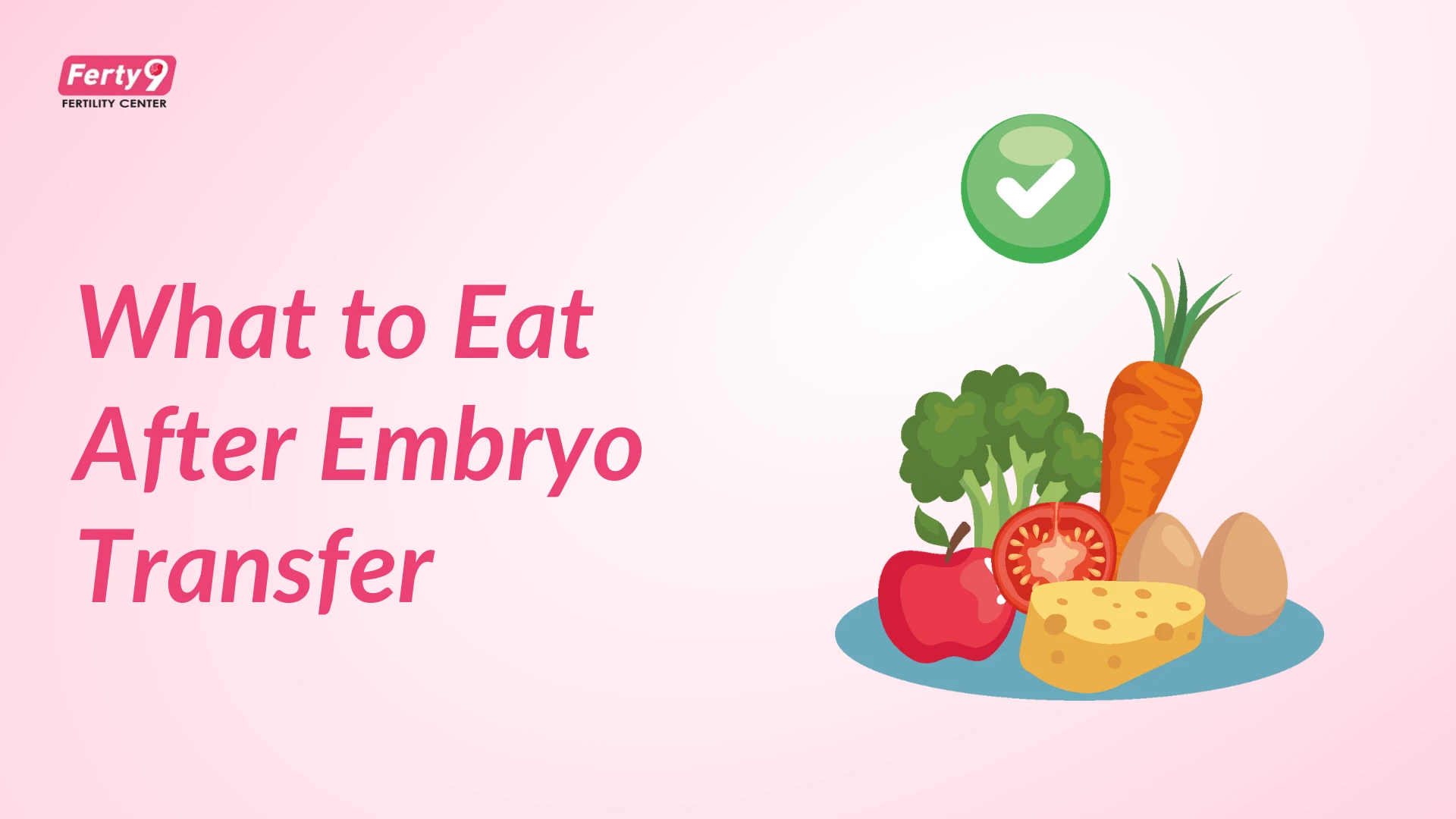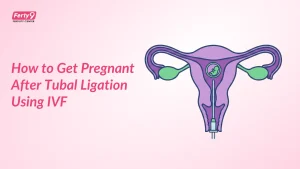The embryo transfer is the final and most awaited step of your IVF journey. After this gentle procedure, the focus shifts to the “two-week wait,” a time filled with hope as you wait for the embryo to implant. During this critical period, many couples wonder, “Is there anything more I can do?” The answer is yes. Your post-transfer care, especially your diet, can play a significant role in creating the perfect environment for implantation.
Nutrition is a powerful tool. The right foods can support your body, balance your hormones, and improve your chances of a successful pregnancy. This guide is here to walk you through the best foods to eat and what to avoid after your embryo transfer.
The Role of Nutrition After Embryo Transfer
A healthy diet after your embryo transfer is about creating a warm, receptive, and nurturing home for your embryo. The right nutrition helps to:
- Support Uterine Health: A healthy diet improves blood flow to the uterus, helping to build a thick, healthy uterine lining (endometrium) for the embryo to implant.
- Balance Hormones: Nutrients are the building blocks of hormones. A balanced diet helps maintain the delicate hormonal balance, especially progesterone, which is crucial for sustaining a pregnancy.
- Reduce Inflammation: Certain foods can cause inflammation, which is not ideal for implantation. A clean, anti-inflammatory diet helps create a calm and supportive environment in your body.
Foods to Eat After Embryo Transfer
Focus on simple, warm, home-cooked meals that are easy to digest. Think of your diet as a way to comfort and support your body.
Protein-Rich Foods
Protein is essential for cell growth and repair and for producing the hormones needed for pregnancy.
Sources: Lentils (dal), chickpeas, beans, paneer, tofu, eggs, and lean chicken.
Healthy Fats
Healthy fats, especially omega-3 fatty acids, are crucial for reducing inflammation and supporting hormonal balance.
Sources: Walnuts, flaxseeds (alsi), chia seeds, avocado, and pure ghee. If you are non-vegetarian, small, low-mercury fish can be a good source.
Iron and Folate-Rich Foods
Iron is vital for carrying oxygen to your uterus, while folate is essential for the healthy development of the embryo.
Sources: Spinach (palak) and other leafy greens, beetroot, beans, and lentils.
Complex Carbohydrates
These provide a steady supply of energy without causing sharp spikes in your blood sugar.
Sources: Whole grains like brown rice, oats, quinoa, and whole wheat roti.
Hydration and Fluids
Staying hydrated is crucial for healthy cell function and blood flow.
What to Drink: Aim for 8-10 glasses of water a day. Coconut water and warm, homemade soups are also excellent choices.
Foods to Avoid After Embryo Transfer
Just as important as what you eat is what you don’t eat. During this time, it’s best to avoid:
- High-Caffeine Beverages: Limit your intake of coffee and tea, as excessive caffeine can affect uterine blood flow.
- Processed and Junk Foods: Packaged snacks, fast food, and foods with preservatives can cause inflammation. Stick to fresh, homemade meals.
- Raw or Undercooked Foods: Avoid raw fish (sushi), undercooked meat, and raw eggs to prevent the risk of infection.
- Alcohol and Sugary Drinks: Alcohol should be avoided completely. Sugary sodas and packaged juices can cause blood sugar spikes and disrupt hormonal balance.
Daily Meal Plan After Embryo Transfer
Here’s a simple, nourishing meal plan to guide you:
- Breakfast: A bowl of warm oatmeal (daliya) with nuts and fruits, or 2 boiled eggs with a slice of multigrain toast.
- Mid-Morning Snack: A bowl of fresh fruit like pomegranate or berries, or a handful of almonds and walnuts.
- Lunch: Brown rice or 2 whole wheat rotis with a bowl of dal, a portion of green vegetables (sabzi), and a small bowl of curd (dahi).
- Evening Snack: A cup of warm herbal tea (like ginger or mint) with a handful of roasted chickpeas (chana).
- Dinner: A comforting bowl of khichdi with a spoonful of ghee, or a light vegetable and lentil soup.
Superfoods That Support Implantation
- Berries: Full of antioxidants to protect your cells.
- Walnuts: A great source of omega-3s for hormone support.
- Spinach: Packed with folate for healthy cell development.
- Yogurt (Dahi): Probiotics for a healthy gut, which is linked to overall well-being.
- Seeds (Chia, Flax): Rich in healthy fats and essential minerals.
Importance of a Balanced Lifestyle Along With Diet
Your diet is most effective when combined with a supportive lifestyle.
- Sleep and Stress Management: Get plenty of rest and aim for 7-8 hours of sleep. Practice deep breathing or meditation to keep stress levels low.
- Gentle Activity: Avoid strenuous exercise. Gentle walking is encouraged to promote blood circulation.
- Positive Mindset: Stay positive and hopeful. Your emotional well-being is incredibly important during this time.
Common Myths About IVF Diet
- Myth: Eating pineapple core guarantees implantation.
- Truth: While pineapple contains bromelain, which has anti-inflammatory properties, there is no scientific evidence that it guarantees implantation. A balanced diet is more important.
- Myth: You must stay on complete bed rest after the transfer.
- Truth: Our Ferty9 doctors recommend “couch rest” for a day or two, followed by a return to light, normal activities. Strict bed rest is not necessary and can increase stress.
- Myth: Herbal teas can boost IVF success.
- Truth: Some herbal teas are safe, but others are not. Always consult your doctor before consuming any herbal products.
When to Consult a Nutritionist or Fertility Expert
If you have underlying health conditions like PCOS or thyroid issues, or if you simply want a more structured plan, consulting a nutritionist can be very helpful. Our team at Ferty9 can guide you to ensure your diet is perfectly aligned with your treatment.
Summary
After your embryo transfer, your body needs gentle care and nourishment. A balanced, warm, and comforting diet, along with plenty of hydration, is a powerful way to support your body during the two-week wait.
Eat clean, stay positive, and trust the guidance of your medical team. The entire Ferty9 family is here to support you on your journey to parenthood.




























